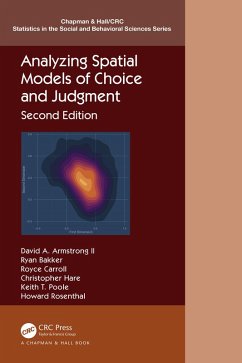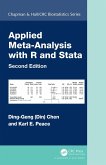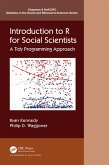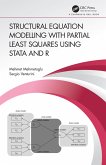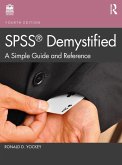Dieser Download kann aus rechtlichen Gründen nur mit Rechnungsadresse in A, B, BG, CY, CZ, D, DK, EW, E, FIN, F, GR, HR, H, IRL, I, LT, L, LR, M, NL, PL, P, R, S, SLO, SK ausgeliefert werden.
"This book provides excellent coverage of spatial models of choice and judgment...Overall the manuscript is technically correct and clearly written. The biggest strength of the book is the deliberately informal and applied nature of the approach of the book, where both code and output are shown. This makes it very easy for researchers to quickly get these models running on their own data quickly." (James Lo, USC)
"I find the manuscript technically sound, clearly written, and at an appropriate level of difficulty for quantitative social scientists. It has several strengths. First, it is a comprehensive and up-to-date survey of spatial models for scaling preferential and perceptual data (including dyadic data measuring similarities/distances). Second, it is replete with interesting examples from political science, which greatly increases the readability of the material. Third, by including many chunks of R code for data analysis and visualization, it greatly reduces barriers to implementing these methods for practitioners." (Xiang Zhou, Harvard University)

